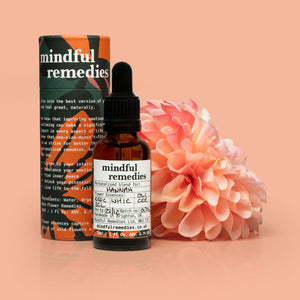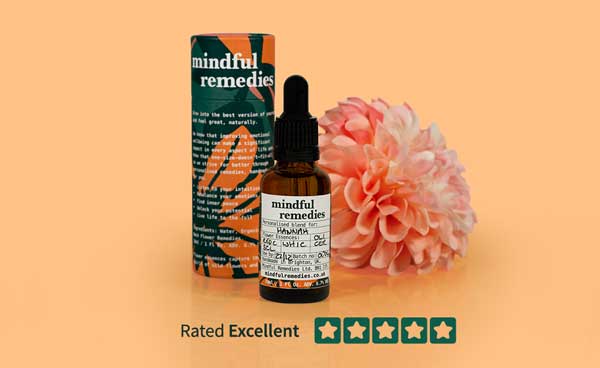your basket
- choosing a selection results in a full page refresh

Mental Health Awareness Week is a time to focus on the importance of mental health and to raise awareness about mental health issues. According to the NHS, one in four adults and one in 10 children experience mental illness, and many more of us know and care for people who do. This week is an opportunity for all of us to learn more about mental health and to find ways to promote mental wellness. In this blog post, we will provide some tips for promoting mental wellness and supporting mental illness.
It’s Mental Health Week - a time to raise awareness of mental health and to encourage people to talk about their own mental health. Mental health is something that everyone has. It's a spectrum, and where you fall on that spectrum can change over time. Everyone's experience of mental health is different, but we all have mental health. By starting a conversation about mental health, we can all help to create a society that is more understanding and supportive of everyone's mental wellbeing.
During Mental Health Week, let's take the time to learn more about mental health and what we can do to support our own mental wellbeing. Let's also take the time to reach out to others who might be struggling and offer our support. We all have a role to play in promoting mental health in our communities.
Mental wellbeing is just as important as physical wellbeing. After all, the mind is a powerful tool that can influence our thoughts, feelings, and behaviour. When we're mentally healthy, we're able to cope with stress, relate to others, and make meaningful contributions to our community. However, when our mental health is compromised, it can lead to a wide range of problems, including anxiety, depression, and substance abuse. Fortunately, there are a number of ways to promote mental wellbeing.
It's so important to take care of our mental health, and yet it's something that many of us don't think about very often. We're so busy taking care of our physical health and our work lives and our social lives that we often forget to focus on our mental health. But this week, let's change that! Here are some tips for promoting mental wellness:
We can exercise regularly, eat a balanced diet, get enough sleep, and take time out for relaxation and hobbies we enjoy. We can also talk to someone we trust about our worries and concerns.
It's well-known that exercise is good for our physical health, but did you know that it can also be beneficial for our mental health? Studies have shown that regular exercise can help to improve mood, increase energy levels, and reduce stress and anxiety. Exercise releases endorphins, which have mood-boosting effects, and it also helps to increase blood flow to the brain, delivering more oxygen and nutrients. In addition, exercise helps to reduce levels of the stress hormone cortisol. So if you're feeling stressed or down, a quick workout could be just what you need to boost your mood.

Research has shown that spending time outdoors can have a positive impact on mental health. One study found that people who walked in nature for just thirty minutes had lower levels of stress and anxiety. Another study showed that exposure to natural light can help to improve mood and reduce symptoms of depression. There are a number of reasons why spending time outdoors can be beneficial for mental health. Being in nature can help to reduce stress and promote relaxation. The fresh air and exercise can also help to improve mood and increase energy levels.
Research has shown that sleep can have a profound impact on mental health. Getting enough quality sleep can help to improve mood, cognitive function, and overall emotional well-being. Conversely, lack of sleep can exacerbate symptoms of mental illness, including depression, anxiety, and irritability. Additionally, sleep deprivation can make it difficult to focus and concentrate, leading to impairments in work or school performance. Therefore, it is essential to ensure that you are getting enough restful sleep each night. If you find yourself struggling to sleep, there are a number of simple steps that you can take to improve your sleep quality and a number of natural remedies for insomnia.
A balanced diet is essential for good physical health, but it can also have a profound impact on mental wellbeing. Numerous studies have shown that a healthy diet can help to reduce the risk of developing mental health problems, such as depression and anxiety. What's more, eating a nutritious diet can also help to improve mood and cognitive function in people who are already living with mental illness. The link between diet and mental health is thought to be due to the fact that the brain needs a wide range of nutrients to function properly. For example, omega-3 fatty acids are known to play a role in neurotransmitter production, while zinc and magnesium are involved in regulating stress levels. By ensuring that the diet contains all of the essential nutrients, it is possible to give the brain the support it needs to maintain good mental health.
A therapist can help to support mental health in a number of ways. First, they can provide a safe and confidential space for patients to share their thoughts and feelings. This can be a valuable release for people who feel they have nowhere else to turn. Second, therapists can offer guidance and advice on how to cope with difficult life events and challenges. They can help patients to develop healthy coping mechanisms and to understand their thoughts and emotions. Finally, therapists can provide support and encouragement on the journey to recovery. They can help patients to set realistic goals and to celebrate their progress.

While medication and therapy are the most commonly prescribed treatments for mental health conditions, more and more people are turning to natural remedies as well. These treatments can include anything from herbs and supplements to acupuncture and meditation. Proponents of natural remedies argue that they are often more or just as effective than traditional methods, with fewer side effects. Additionally, natural remedies can be easily accessed by anyone. While there is still much research to be done in this area, there is evidence that natural remedies can be an effective treatment for mental health conditions. As such, it is worth considering natural remedies as a potential treatment option for yourself or a loved one.
Bach flower remedies are one form of natural remedy that can be used to treat a wide variety of mental health conditions. The founder of the Bach remedy system, Dr. Edward Bach, created 38 different flower remedies that each correspond to a different emotional state. By taking the correct flower remedy, he believed that it was possible to bring the mind back into balance and improve mental health. While the scientific evidence for the effectiveness of Bach flower remedies is limited, many people swear by their ability to relieve stress, anxiety, and depression. If you are struggling with your mental health, it may be worth giving them a try. At Mindful Remedies we offer people the ability to create your own personalised flower remedy, choosing up to seven of the 38 flower remedies. We'll then hand blend your remedy and post it to you. You can learn more about Bach flowers on our what are flower remedies page.

Mental health services in the UK have come a long way in recent years. However, there is still a long way to go. Mental health services in the UK are currently underfunded and understaffed. This means that many people who need help are not able to get the help they need. In addition, mental health services in the UK are often stigmatised. This means that many people who need help do not seek it out because they are afraid of being judged. There is a lot of work to be done to improve mental health services in the UK, but it is clear that progress is being made.
Mental health services in the United Kingdom are provided by a variety of organisations, including the NHS, charities, and local authorities. Mental health services in the UK are available to everyone, regardless of their age, gender, or background. There is a wide range of mental health services available in the UK, including counselling, therapy, and medication. Mental health services in the UK provided by the NHS are free at the point of use. This means that you do not have to pay for these services if you need them. Mental health services in the UK are confidential. You can also access mental health services in the UK through your GP surgery or local hospital. If you need urgent help, you can also call 111 or 999. You can also access the NHS's mental health helpline for urgent mental health support.
Mental health charities play an important role in supporting those who are struggling with their mental health. In the UK, there are a number of mental health charities that provide essential services and support to those who need it. These charities provide a range of services, including crisis intervention, counselling and therapy, support groups, and information and advice. They also work to raise awareness of mental health issues and promote understanding and acceptance. By providing these services, mental health charities help to make a real difference in the lives of those who use them.
Here are some of the main mental health charities in the UK who may be able to provide support:
By prioritising mental health, we can build more resilient communities and create a lasting foundation of wellbeing. We hope these tips have been helpful and that you will continue to promote mental wellness in your community all year long. Remember, if you are struggling, it is okay to seek help. There are many resources available to you, and we want to support you in any way we can. Thank you for reading our blog post, and please share it with your friends and family.

Since 2021, Lucy Edwards, a qualified Bach Flower Practitioner and the driving force behind Mindful Remedies, has connected with clients across the world. Crafting thousands of personalised remedies, Lucy has supported individuals' emotional wellbeing, shipping remedies to far-flung places like the USA, Thailand, and Australia.
Lucy is readily available for conversations, offering personalised advice to guide you on the path to holistic wellness. It's important to note that she's not only qualified but also registered with the Bach Centre, ensuring that every consultation and remedy adheres to Dr Bach’s original guidelines for expert care and efficacy.
Exclusive pricing 20% off your first subscription order and 5% off all future orders
VIP treatment Receive personalised advice from Lucy, free gifts & 15% off gift vouchers
Easy to manage Edit remedy, change schedule, pause or cancel at any time
Exclusive online workshops Access to workshops focusing on emotional wellbeing, guided by Lucy
Early access to new products Be the first to try out new remedies or wellness products, before anyone else



